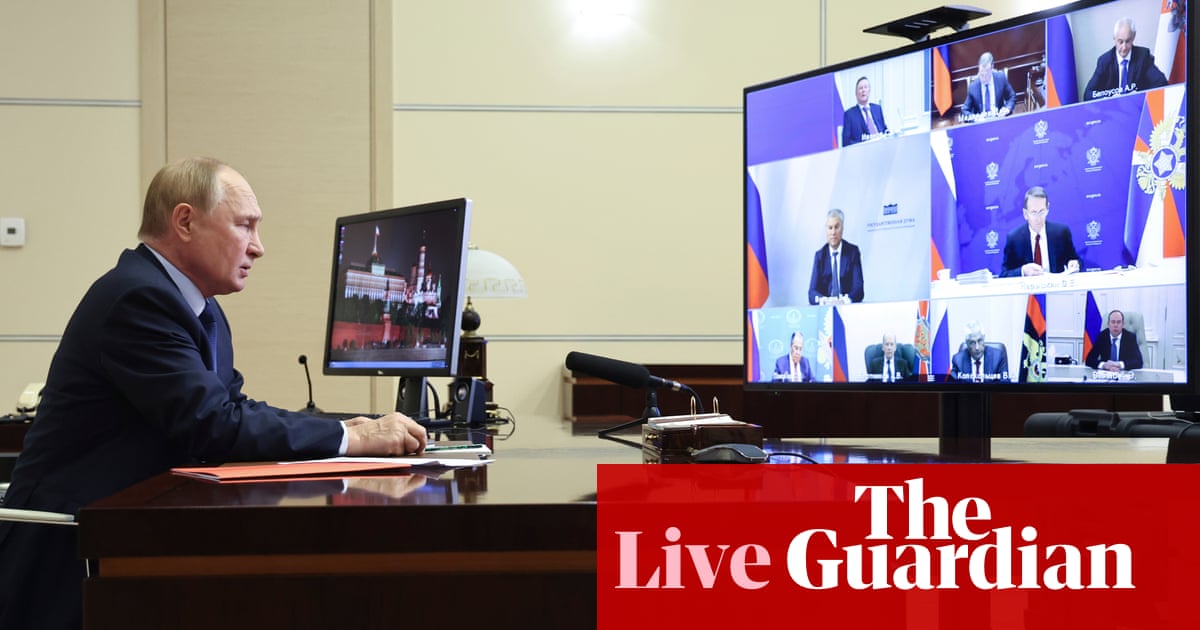Russia to UN on Long-Range Missile Use: ‘NATO Will Be a Direct Party to Hostilities Against a Nuclear Power’
In a tense session at the United Nations Security Council, Russia’s ambassador Vassily Nebenzia issued a stark warning regarding the implications of Western support for Ukraine’s military capabilities. He asserted that if NATO countries permit Ukraine to conduct long-range strikes within Russian territory, it would effectively mean that NATO is engaging in direct hostilities against a nuclear power. This statement underscores the escalating rhetoric and the potential for a significant shift in the dynamics of the ongoing conflict.
The Context of the Warning
Nebenzia’s comments come amid heightened tensions following Russia’s invasion of Ukraine, which began in February 2022. The ambassador emphasized the gravity of the situation, stating, “The facts are that NATO will be a direct party to hostilities against a nuclear power. I think you shouldn’t forget about this and think about the consequences.” This warning reflects a broader concern within Russia about the potential for Western military support to escalate the conflict further.
Russian President Vladimir Putin echoed these sentiments in a recent address, asserting that any decision by Western nations to allow Ukraine to utilize long-range weapons against Russian targets would signify that NATO is "at war" with Moscow. He characterized this development as a dramatic escalation, fundamentally altering the nature of the conflict. Putin stated, “This would in a significant way change the very nature of the conflict,” indicating that Russia would respond with “appropriate decisions based on the threats that we will face.”
The Implications of Long-Range Strikes
The potential use of long-range missiles, such as the British-supplied Storm Shadow missiles, has been a contentious issue. UK Prime Minister Keir Starmer’s visit to Washington, where he is expected to discuss the provision of these missiles to Ukraine, highlights the ongoing support for Kyiv from Western allies. The prospect of Ukraine striking targets deep within Russian territory raises significant concerns about escalation and the potential for a broader conflict involving NATO.
Ukraine’s President Volodymyr Zelenskiy has been vocal about the necessity of long-range weapons to target military installations within Russia. During meetings with foreign ministers from Poland and Lithuania, he emphasized the importance of these capabilities in countering Russian aggression. The discussions reflect a unified stance among Ukraine’s allies regarding the need to bolster Ukraine’s military capabilities in the face of ongoing threats.
Russia’s Response to Western Support
The Kremlin has been quick to respond to any perceived threats from Western military support. Spokesperson Dmitry Peskov reiterated that Putin’s message regarding the consequences of allowing Ukraine to strike Russian territory was clear and had been received by its intended audience. This rhetoric serves to reinforce Russia’s position that any escalation in military support for Ukraine could lead to severe repercussions.
Additionally, Russia’s investigative committee has opened a criminal case against the head of Ukraine’s armed forces, Maj Gen Dmitry Krasilnikov, in response to incursions into Russian territory. This move underscores the Kremlin’s determination to hold Ukrainian leaders accountable for actions that it perceives as aggressive.
The Broader Geopolitical Landscape
The situation is further complicated by recent developments in the Black Sea, where NATO condemned a Russian missile strike on a civilian grain ship. This incident marks a significant escalation in hostilities, as it is the first time a civilian vessel has been targeted since the onset of the conflict. NATO spokesperson Farah Dakhlallah condemned the attack, stating, “There is no justification for such attacks. Yesterday’s strike shows once again the reckless nature of Russia’s war.”
As the conflict continues to evolve, the stakes are higher than ever. The potential for NATO’s involvement in direct hostilities with Russia raises questions about the future of European security and the global balance of power. The international community watches closely as both sides navigate this precarious situation, with the risk of miscalculation looming large.
Conclusion
The warning from Russia’s UN ambassador highlights the delicate balance of power in the ongoing conflict between Russia and Ukraine. As Western nations consider increasing military support for Ukraine, the potential for escalation into a broader conflict involving NATO cannot be overlooked. The situation remains fluid, and the decisions made in the coming days and weeks will have far-reaching implications for regional stability and international relations. The world holds its breath as the conflict unfolds, hoping for a resolution that avoids further bloodshed and maintains peace.


